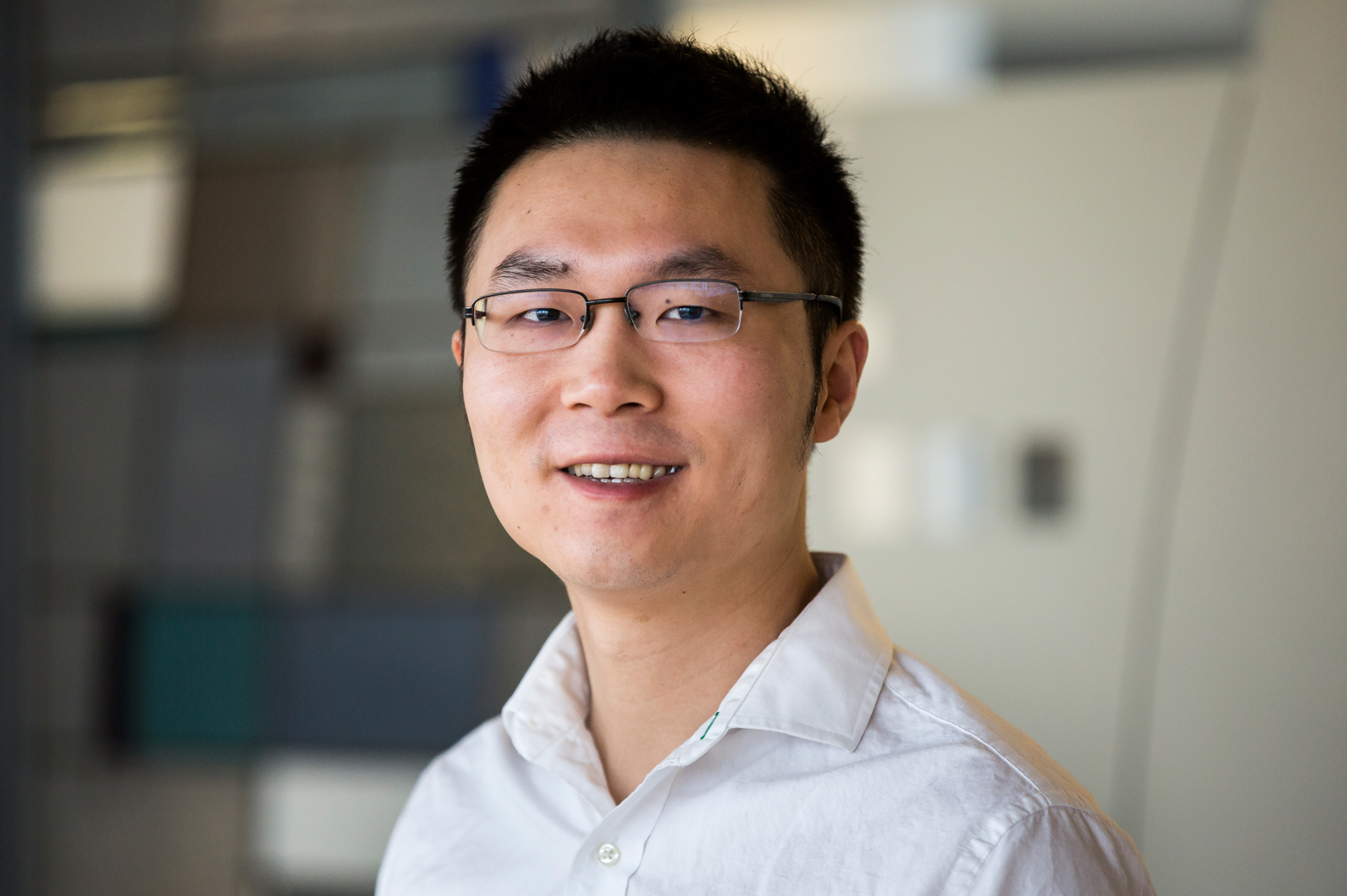Jia Deng selected for Sloan Research Fellowship
Prof. Deng was selected for his work in computer vision and machine learning.

 Enlarge
Enlarge
Assistant Professor Jia Deng has been selected for a 2018 Sloan Research Fellowship by the Alfred P. Sloan Foundation for his work in computer vision and machine learning.
Prof. Deng directs the Michigan Vision & Learning Lab. His research seeks to enable computers to see and think like humans.
In 2015, Prof. Deng was awarded a Google Faculty Research Award for his work on large-scale image understanding. He aimed to advance image understanding in terms of recognizing the relationships present between multiple entities in images. The development of such an image understanding system would enable image retrieval for complex or arbitrary queries, such as “is there a person standing on a red chair and fixing the light?” It would also enable the generation of rich image descriptions.
In 2016, he won the PAMI Everingham Prize for his work in developing ImageNet, a large-scale image database that has powered many recent advances in computer vision. ImageNet consists of more than 14 million images, with human-verified labels covering more than 20,000 distinct visual categories. The construction of ImageNet pioneered large-scale crowdsourcing in computer vision and enabled visual learning at a scale orders of magnitudes larger than previously possible. The unprecedented scale of ImageNet fueled the revival of neural networks and led to large improvements in object recognition performance.
Most recently, his research group has studied the problem of recovering 3D properties from a single image. One recent work addresses the shape-from-shading problem by training deep networks with synthetic images. Shape-from-shading is the process of computing the three dimensional shape of a surface from one image of that surface. Unlike conventional approaches that combine deep learning and synthetic imagery, his group proposes an approach that does not need any external shape dataset to render synthetic images. The approach consists of two synergistic processes: the evolution of complex shapes from simple primitives, and the training of a deep network for shape-from-shading. The evolution generates better shapes guided by the network training, while the training improves by using the evolved shapes. It is shown that the approach achieves state-of-the-art performance on a shape-from-shading benchmark.
Prof. Deng received his Ph.D. from Princeton University and his B.Eng. from Tsinghua University, both in computer science. He is also a recipient of the Yahoo ACE Award, an Amazon Research Award, the ICCV Marr Prize, and the ECCV Best Paper Award.
About the Sloan Research Fellowship
The Sloan Research Fellowships seek to stimulate fundamental research by early-career scientists and scholars of outstanding promise. These two-year fellowships are awarded yearly to 126 researchers in recognition of distinguished performance and a unique potential to make substantial contributions to their field.
 MENU
MENU